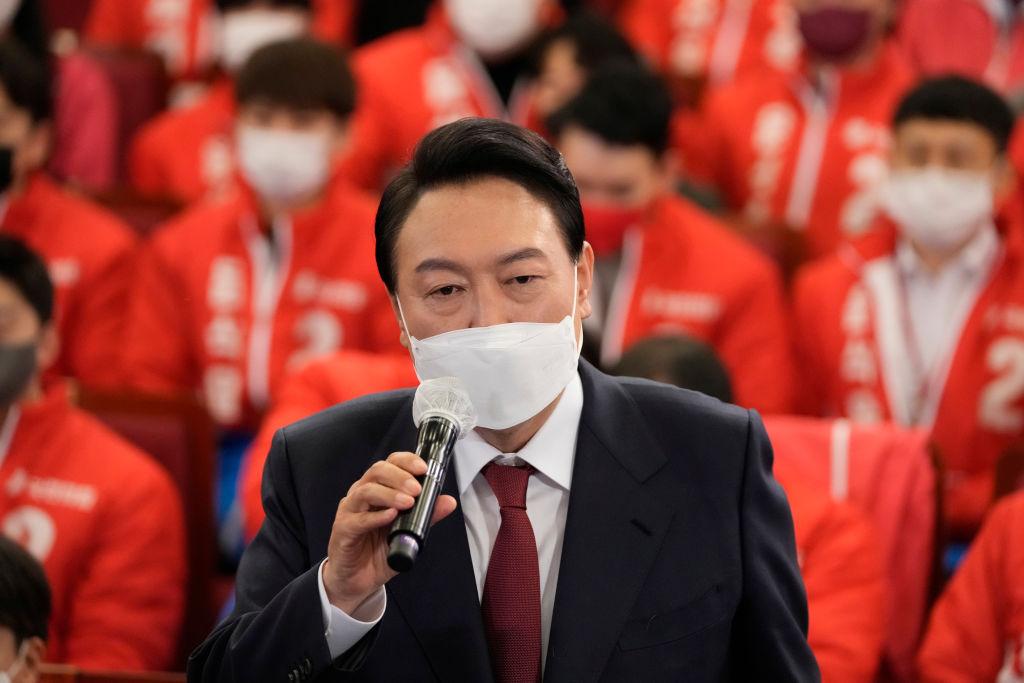Election of new South Korean president presents opportunities for Australia
Posted By Bill Paterson on March 30, 2022 @ 13:45

South Koreans elected a new president earlier this month. Few Australians noticed or cared, preoccupied by concerns closer to home, by Russia’s aggression in Ukraine or by China’s belligerence toward us and others. But the outcome has consequences for our region—and opportunities for Australia’s Indo-Pacific policies.
The Australia–Korea relationship doesn’t get the attention it merits in Canberra—or in Korea. Korea is Australia’s third largest export market and an increasingly active and growing foreign investor in Australia. It’s a big economy—having surpassed Australia’s GDP—a robust democracy and an innovation powerhouse. We take for granted the place that Hyundai, Kia, Samsung, LG and others have in our lives, but we give little attention to their Korean origin or the importance Australia has in their supply chains.
But corporate Korea does, even if the Korean government, like Australia’s, has given inadequate attention to using our shared interests to collaborate more closely. In February, Korea sent a senior trade delegation to Australia, coming on the heels of a December visit by its outgoing president, Moon Jae-in, urgently to pursue secure supplies of critical minerals and hydrogen.
This is likely to cement Australia’s place as one of Korea’s key suppliers and trade partners as our fossil-fuel trade declines in coming years. Moon also witnessed signing of a contract for Korean supply of self-propelled howitzers for the Australian Army—Australia’s first major defence contract with an Asian country. His visit discreetly signalled comfort with the Quad and AUKUS.
South Korea sits geographically close to both China and Russia, and faces a hostile and isolated North Korea immediately across the demilitarised zone that separates the two halves of a long unresolved conflict. North Korea shares borders with both China and Russia, which have been the North’s backers since its formation. The North will have judged NATO’s reluctance to risk action that could provoke nuclear-armed Russia as validating its nuclear deterrence strategy. So recent strategic developments have an ominous immediacy and proximity for US-allied Korea—and more widely.
The outcome of the vote was election of a conservative administration led by People Power Party candidate Yoon Suk-yeol, replacing the centre-left administration of Moon. The campaign was unedifying, with mudslinging allegations of corruption exchanged between two unappealing candidates. Neither convincingly addressed the concerns, particularly of young Koreans, about escalating costs of housing, gender equality and a high-pressure education and employment environment stressing their lives. And neither has direct experience in managing international policy.
But behind the politics is a well-honed bureaucracy that will enable a smooth transition, and change is likely to be incremental rather than dramatic. A new president inexperienced in international affairs offers scope for Australia to help shape his outlook, given that in many respects it will be compatible with and supportive of our own.
South Korean opinion has turned decidedly anti-China, fuelled by damaging Chinese sanctions placed on the Korean economy after Seoul agreed, despite Beijing’s protests, to emplacement of a US anti-missile battery in Korea in 2016. This has since been compounded by a series of perceived Chinese slights against Korean cultural icons. But China looms large in both trade and geography for Seoul, so it will likely maintain its declared policy of ‘strategic ambiguity’.
As the South Korean election approached, North Korea ramped up missile tests and hostile commentary. North Korea feared the election would result in a renewed Korean commitment to its US alliance, which was shaken by President Donald Trump’s feckless outreach to North Korea’s Kim Jong-un and damaging threats to reduce the US commitment to the alliance.
Korea is now likely to endorse US—and Australian—objectives in the Indo-Pacific more prominently, but still cautiously. It has no wish to gratuitously incur China’s renewed displeasure, and it will have concerns that a US administration focused on the implications of the Ukraine crisis could pay less attention to East Asia. And Trump could return in 2024, again putting at risk the US security guarantee.
It’s accepted wisdom that like-minded democracies must close ranks and increase collaboration in response to the authoritarian challenge. Korea and Australia both need and seek closer regional partners in this increasingly dire international situation. So, what should Australia do?
A first step should be for the Australian prime minister, post-election, to rapidly pay a visit mid-year to both Korea and Japan, ideally before visiting other close partners. The symbolism would be strong, and in Korea’s case would be one of the new administration’s first visitors, as it only takes office in May.
Aside from building a personal relationship between leaders, the visit would signal that Australia takes seriously its assertions—often to date lacking in much substance—that Korea is one of its closest regional partners, that Australia offers Korea a highly stable and welcoming investment environment and that we want to put more substance into the defence relationship. As a free-trade partner of Korea, Australia could assist its entry into the Comprehensive and Progressive Agreement for Trans-Pacific Partnership.
The Australia–Korea Business Council is already planning a mid-year trade mission to engage the administration as it settles in—and this could be built into the visit. Relevant ministers in the new Australian government (foreign affairs, defence and trade in particular) should similarly meet with their new Korean counterparts in the early months of both administrations—and commit to regular interaction. Bringing forward and expanding the scope of bilateral military exercises should follow. Korea will be courted by many partners in the administration’s early days. We will have to compete for attention.
If we’re as serious as we say we are about getting closer to regional friends in response to the authoritarian challenge, we need to do it, sustain it and give it real substance. Too often we haven’t gone enough beyond the rhetoric. There’s opportunity, and a Yoon administration is likely to respond positively.
Article printed from The Strategist: https://aspistrategist.ru
URL to article: /election-of-new-south-korean-president-presents-opportunities-for-australia/
Click here to print.